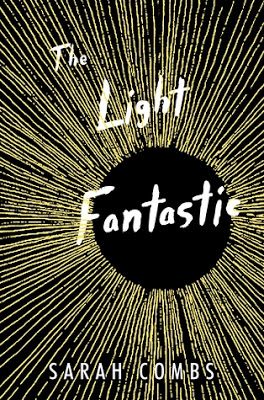Welcome to another session of Turning Pages!
One of the uses of exploring new people, places, and things in fiction is to understand and normalize them. As I stated a few months back in my review of Marike Nijkamp’s THIS IS WHERE IT ENDS, I struggle with the idea of YA novels about mass shootings, not because there’s any topic which shouldn’t be covered in a YA novel, but because writers may be unable to truly give the subject the kind of writing it needs – and I’m not even sure what kind of writing that would be, so while I can read critically, because of my emotional reaction to the subject, this might not be the most objective review.
Synopsis: This novel interweaves seven narratives in a loosely linked story cycles. These teens, representing different states and cities, live separate, but interconnected lives in a fateful three hour period:
Because of her hyperthemesia, April Donovan connects everything to its date — the day she was born was the Oklahoma City bombing. The day Lincoln Evans kissed her eyelid in grade school and moved away was because of September 11th. April is going to remember this day, not only because it’s four day after the Boston marathon bombing, but because it’s her 18th birthday and the day she decided to ditch everyone and go for a solo swim when no one else is in the pool… as she decides whether or not to contact Dr. Angel, the man who supposedly can cure her memory disorder. April’s surprised when the boy she threw a spelling bee for so long ago, class salutatorian Pallav Gakhar shows up at the pool, too… is Pal actually looking for her? Or… seeing something else? Gavin wishes April hadn’t wandered off – he and Gina have been waiting the in lockdown closet, having a private party while planning prom outfits for their three-person prom-date and just generally goofing off. Gavin hadn’t counted on anyone actually using the lockdown closet – or a real lockdown situation. Ms. Heslip just didn’t want to fight with the seniors on skip day, and let them all go — and now, it looks like she might have made a huge, huge mistake… In another state, Lincoln Evans is trailing – as usual – behind his beautiful addiction, Laura, who has brought him to a strangely deserted housing estate for… reasons? She’s got a gun. She’s crying. And all Lincoln wants is to run away, and make everything stop. Micah is a mass of seething resentment and contradictions that he’d like to escape. He’s also just broken his computer, strapped a set of wings to his back, and is headed to his father’s office. Phoebe has felt monumentally stupid for so long – one or two bad decisions, and everything just snowballed. She fell for the oldest trick in the book, and subsequently quit everything – her soccer, her sister. No one can see you online, and it’s easier to feel smart there. Phoebe’s found the comfort of shared shame online, and today is the day all the drama ends.
 Observations: It’s a fact not often explored that young adults born in the mid to late-nineties have an unfortunate connection with violence underscoring their own histories. Mass murders are a reality they have never not lived with, just like the internet and certain Apple products. But while we talk about and acknowledge the phenomenon of this violence, nothing has begun to touch on solving the issue, which is at least in part the availability of weapons, nor does any of our talking really help us better understand what happens to create the tipping point for the shooters. This begins to make mass murders seem like some bizarre sort of modern inevitability, which is, I think, my primary objection against novelizing them.
Observations: It’s a fact not often explored that young adults born in the mid to late-nineties have an unfortunate connection with violence underscoring their own histories. Mass murders are a reality they have never not lived with, just like the internet and certain Apple products. But while we talk about and acknowledge the phenomenon of this violence, nothing has begun to touch on solving the issue, which is at least in part the availability of weapons, nor does any of our talking really help us better understand what happens to create the tipping point for the shooters. This begins to make mass murders seem like some bizarre sort of modern inevitability, which is, I think, my primary objection against novelizing them.
There is a wealth of focus in this novel on the emotional turbulence of normal teens, with a focus on shared shame, and shared inability to get past certain events. And that’s the one link that I found in each of these characters – they’re all struggling with memory. Whether through April’s date-specific memory, or Phoebe’s loop of shame, or Laura’s inability to get past an incident that is considered “old,” since it happened almost a year ago, each of the characters has been emotionally stunted by being unable to grow past a traumatic event. The persistence of memory means that these incidents are in some way shaping each of their lives. The Mastermind behind the grand plan to end everything and punish everyone is himself depicted as an immature, resentful person whose inciting incident is never clear — but even he obsesses over the girl he tutored, and his abhorrence of her rejection of him as boyfriend material. Things like rejection happens to everyone, however — is this truly enough to be an inciting incident? A truly in-depth exploration of the emotional issues creating that tipping point is basically impossible – but even the cursory exploration here is sidetracked by the multiple voices telling the story. What causes school shooters to shoot, differ so wildly by shooter/situation a clear answer isn’t possible – and in the novel, with the multiplicity of characters and voices, some merely representing the average teen angst, others representing pathological tendencies, there is equally no clarity.
Through an interview slated for inclusion in an independent campus newspaper put together by Pal and his smart friend, Ben, the novel takes a stab at unpacking microaggressions. Through the interview, in which Pal quasi-satirically unloads himself onto Ben for all of the slights and racial sneers through the years, we are given to understand that the microaggressions are in part to blame for a smart kid’s despair at being “the good boy” in his family, of being this sacrificial lamb of perfection. The satire, however, only confuses and saddens his parents. Pal meant to make the joke about how treating people doesn’t matter — only how we talk about it does, to most people — instead, how Pal is treated is the absolute true horror of the novel, because it’s never discussed, only stated as a “we knew this would happen.” To quote from the uncorrected proof on page 289:
Us. Them. Pallav Gakhar knows he cannot do this thing to himself, but he also knows he won’t have to. All he has to do is summon them. He knows how they will see him; he knows they’ll shoot first, ask questions later.
To restate: a brown boy essentially commits suicide-by-police — and while later we’re assured that everyone believes the Caucasian girl, April when she says how it goes down, that’s incredibly wide of the point for me. That violence against people of color in this country by law enforcement is a huge, huge, MONUMENTAL, massive problem is so true and real and horrible that to have this scene included in the novel – in such a throwaway manner, without discussion or emotional closure or understanding of the character or respect – feels horribly flippant. In a novel packed with voices, themes, and concepts, this felt like the author lost objectivity, and went for the gut-punch sensationalism of a ripped-from-the-headlines clickbait news item. This death was tragic for all the wrong reasons, and was just one thing too many.
Conclusion: For a book about a day of violence and its aftermath, there is very little actual violence in the novel; instead, the focus is on memory, and the point at which one makes decisions – the moment when the “the light fantastic” shines. Readers who aren’t accustomed to seven separate points of view may struggle with connecting to a particular character, or getting into their heads, and may find themselves confused until the story hits its stride. Readers interested in the phenomenon of hyper acute memory or hyperthemesia will be intrigued by April’s view of the world. While overall I didn’t feel like this book said much new about the phenomena of school shootings and mass murders, some readers will simply want to tune in to see what happens next, the way we all tend to crane our necks at a car crash.
I received my copy of this book courtesy of Candlewick Press. After September 13th, you can find THE LIGHT FANTASTIC by Sarah Coombs at an online e-tailer, or at a real life, independent bookstore near you!
